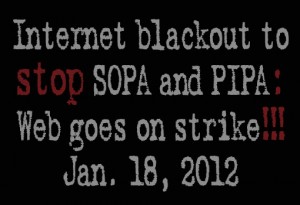Only Dreams of Agency

The Dream
The documentary “Hoop Dreams” is a good representation of the extent individuals can exhibit agency within their environment (or the lack thereof). The protagonist’ in the documentary, Arthur and William, start out as having the same goal of some day playing in the National Basketball Association, like their idol Isiah Thomas. When first thinking about this dream, it seems common practice for any kid to want that goal. The difference however, is that Arthur and William have no choice but, to have that dream. The kids live in a poor area of Chicago, where drug dealing is rampant, role models are nearly non-existant, and schools are not up to par. Therefore, while the boys might love basketball and express agency through the choice to play basketball, they also have no other avenue to success which erodes their agency. Education is not an option for them until, they are recruited to St. Johns because of their basketball abilities. St. Johns is an expensive private school however, and since Arthur’s basketball skills were not enough for him to afford a scholarship, he is kicked out of St. Johns forcing him to go back to his old community. Within this community, drugs are a common practice, as was seen when Arthur’s dad was arrested for drug possession as well as his best friend. Arthur did not want to go down this avenue in life and decided to dedicate himself to basketball. While the choice to play basketball instead of dealing drugs was Arthur’s choice, there was no other option for success.
Unlike Arthur, William was good enough at basketball to keep his scholarship to attend St. Johns. This allowed him to express more agency than Arthur, as was seen by him attaining a summer job and networking with individuals. Also, the headmaster at St. Johns seemed to routinely check in on William’s academic progress, as well as his basketball progress, giving him another option in life besides basketball, once high school ended. The foundation of the agency though, was still intertwined with the ability to play basketball. This pressure to not let the foundation collapse, lead to William injuring his knee because of the lack of agency basketball forced him into. Clearly hurt, William knew that without basketball, there was no St. Johns and without St. Johns there was no summer job, networking, or education. Therefore, he had to push through his body’s limitations to the extent of injury. The only time William expressed agency beyond basketball was when he had a child with his girlfriend. This action to have a child though, put even more pressure on William to succeed at basketball, so that he could go to a good college and support his new family.
James chose to depict Arthur’s and William’s lack of agency to bring light to the problem it proposes. In poor inner cities, where education is virtually non-existent, there are no other avenues to success or even expression of self other than the pursuit of dreams in the entertainment industry. The lack of agency people have when they are not given the opportunity of a formal education is astounding and that is why James portrayed it the way he did. The issue is real and should not be twisted into a fairy-tale story. We talked about possible ways to fix this problem within class and the one I propose is enforcing the “Robin Hood” act. The problem is only going to be cyclical as education is funded through property taxes and, therefore, the wealthier neighborhoods will always be at an advantage. With the “Robin Hood” act, the money is better distributed. When a high school has a $10 million football stadium and pays their football coach $100,000+ a year, while other schools do not even have buses or books, there is a problem.


